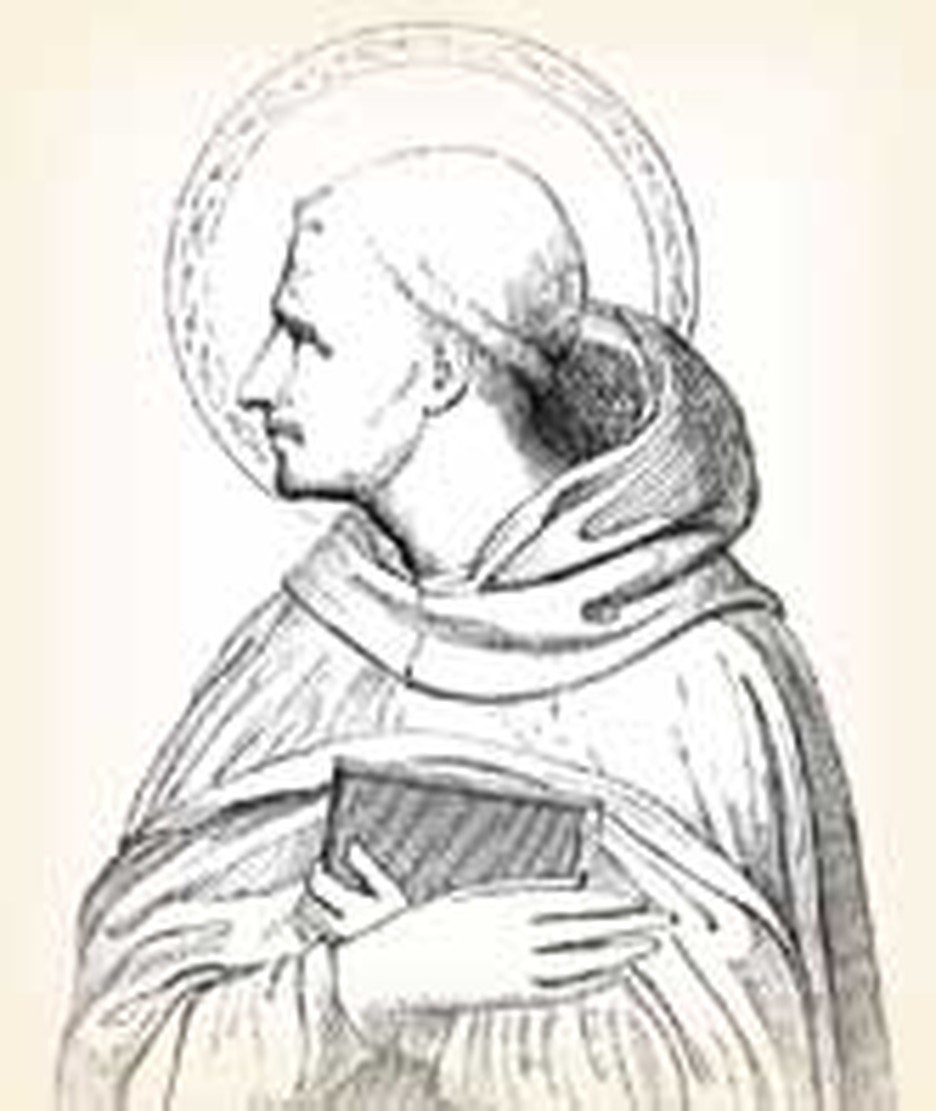
When Bernard joined a monastery, it was not one of the old, well-established and rich abbeys, but Citeaux, of the newly-founded, reform-minded Cistercians. He brought with him thirty other recruits. With that kind of zeal, it is not surprising that three years later he was appointed abbot of his own monastery.
The monastery was as yet only in the mind. He and twelve followers set out to build it. On this day, June 25th, 1115, in an isolated valley in Champagne, France, he founded the famed monastery of Clairvaux. As was true of other Cistercians, he sought a return to the strict rule of St. Benedict. Bernard disciplined himself so strictly with fasts and hard work that his health was permanently damaged. His followers had to appeal to him for a relaxation of the stern regimen, for they could not bear the austerities he demanded of himself and of them.
Despite this, Clairvaux grew so rapidly that it soon founded sister monasteries. Bernard himself founded 70. These in turn founded others. Thanks to his zeal, the Cistercian order was among the fastest growing order of the day.
His stirring sermons lent impetus to Cistercian growth. Catholics and Protestants alike have held his writings in high esteem. Protestants have an especial regard for On Grace and Free Will, a carefully reasoned treatise on the perplexing subject.
Bernard was spiritually minded. His teachings focus on love and holiness. They are saturated with allusions to scripture and, indeed, the Cistercians gave prominence to God's word. Bernard also discussed the role of the Holy Spirit. He argued vehemently against those, like Abelard, who would introduce a spirit of doubt into theology. He wanted God to be known and adored. Many spiritual hymns are attributed to him, for example:
Jesus, the very thought of thee,
with sweetness fills my breast;
but sweeter far thy face to see
and in thy presence rest.
At the same time Bernard was a practical and active man. Not only could he cause monasteries to spring up where none had been before, but he also took part in the affairs of his day. He preached in support of the Second Crusade. It failed. He threw all his influence behind Innocent II against rival claimant Anacletus II. Thanks in large part to Bernard, Innocent II was acknowledged as true pope. Bernard wrote the rule for the new order of the Knights Templars, sworn to defend the Holy Land. He sent hundreds of influential letters to the leaders of his era and made peace between a French king and his subjects.
And what became of Clairvaux? After the French Revolution, its cells ceased to house monks and housed prisoners instead.
Bibliography:
- Bernard of Clairvaux. Sermons on conversion; translated with an introd. by Marie-Bernard Said. Kalamazoo, Michigan: Cistercian Publications, 1981.
- "Bernard, St." The Oxford Dictionary of the Christian Church. Editors F. L. Cross and E. A. Livingstone. Oxford University Press, 1997.
- Evans, G. R. Bernard of Clairvaux. New York; Oxford: Oxford University Press, 2000.
- Gildas, M. "Bernard of Clairvaux, St." The Catholic Encyclopedia. New York: Robert Appleton, 1914.
- Jameson, Anna. Legends of the Monastic Orders. London: Longman, Green and Co., 1872. Source of the image.
- Riley-Smith, Jonathan Simon Christopher. The Crusades; a short history. London: Athlone, 1987.
- Runes, Dagobert. Treasury of Philosophy. New York: Philosophical Library, 1955.
- Wells, Amos R. A Treasure of Hymns; Brief biographies of 120 leading hymn- writers and Their best hymns. Boston: W. A. Wilde company, 1945.
Last updated April, 2007.








